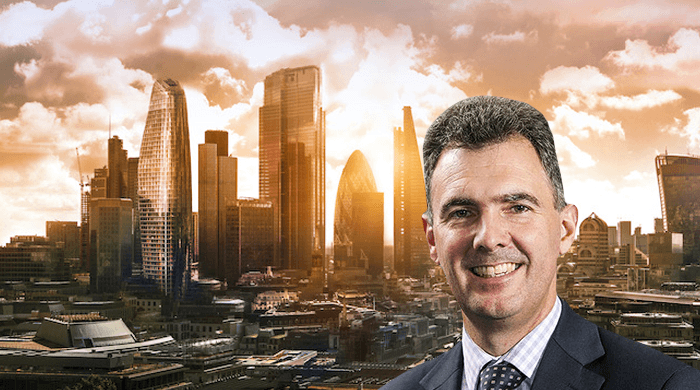ULaw’s director of employability outlines what would-be City lawyers can expect

Lawyer life is likely to look very different as the country gets back to work.
Ahead of Thursday’s ‘How to become a City lawyer in a post-COVID world’ event at which he’ll be speaking, John Watkins, director of employability at The University of Law (ULaw), shares five predictions for would-be City lawyers to consider in the post-COVID world.
1. Online communication skills get a premium
It’s a skill to communicate well on a video call — the conversation doesn’t always flow as naturally as it would face-to-face. Different etiquette applies and only one person can usually speak at a time. Watkins’ advice to students looking to enter the world of work post-COVID is to identify their preferred method of communication — whether that’s a video call or instant message, for example.
Camera shy students are advised to work on their remote communication skills by taking part in online events, such as Thursday’s ‘How to become a City lawyer in a post-COVID world’. There are opportunities to network, virtually, among attendees which is a good way to prepare for the video interviews and virtual assessments law firms are gradually moving towards.
2. The rise of the ‘long-distance’ trainee
It’s often said that if you want a career in corporate law the place to be is the City of London. After all, that’s where most of the major law firms are headquartered. But in today’s virus-ridden world where remote-working has become the norm; we could see a shift away from the City to the regions and maybe even the rise of the ‘long-distance’ trainee.
Londoners have become somewhat accustomed to forgoing the daily commute, with some having realised that taking the Tube or other means of public transport is not only a costly but timely expense that could be spent in more useful ways. Watkins fleshed this out by way of an example: lawyers may spend an hour to an hour and a half commuting into London from outside the City — that’s up to three hours each day and 15 in your average week — multiply that by each person working at the firm and you end up with quite a substantial figure.
Law firms are likely to continue to let their lawyers, and their trainees, work from home even after the pandemic has passed. This could mean you wouldn’t have to fork out on a tiny flat in Zone 2 and could even become a magic circle hotshot from your childhood bedroom (wherever that may be) or a nomad if the time zones and firm policy allows for it.
Law schools are putting flexible policies in place, too. ULaw has a campus-wide policy, CampuSwitch, that enables students on some courses to start their degree at one campus (ULaw has nine dotted across the country) and then switch to another to continue and complete their studies.
3. The online-onsite office of the future
But don’t set your sights on a rural retreat just yet. “There’s something really exciting about London,” says Watkins. “It has this buzz where things just move a lot faster. It’s the heartbeat of law.”
He thinks the office of the future is likely to be “blended”, both online and onsite. It’s an approach already taken by magic circler Clifford Chance with the launch of its online legal internships last week and decision to scrap its traditional summer vacation scheme but keep a few in-office programmes. It’s a signal to the market of what’s to come.
Watkins mentions the relative ease of being able to log-in from the comfort of his home and engage with a far greater number of students online than he might do at a physical event. But in his experience, this comes at the expense of “invaluable” face-to-face interaction. Developing a new business connection often takes more effort than simply firing off a LinkedIn request, he says. Meeting in-person helps build trust.
He also has something to say about new starters. “There might be a longer lead time given that they’re adjusting to a new firm under new conditions and will have to get to grips with new systems that they would normally pick up in-person,” explains Watkins. Plus the camaraderie among colleagues can never really be replaced by virtual drinks and Zoom quizzes, can it?
4. Doing your bit for society
Watkins has spotted an interesting theme emerge following last month’s Legal Cheek-ULaw Virtual Vacation Scheme at which he spoke. He asked attendees to rank their top ten priorities when researching different firms. Interestingly, a firm’s adherence to diversity and inclusion came out on top, followed by the opportunity to be involved in pro bono and support others through Corporate Social Responsibility. When Watkins conducted the same survey with another group of students earlier this year, and prior to the lockdown, competitive remuneration (the likes of which you’ll find at City-headquartered outfits) topped the list. In comparison, pay ranked lowest, in tenth position, for the second group surveyed.
In some respects this attitudinal shift is “a reflection of how the world has become a lot kinder in lockdown”, says Watkins. Expectations have changed as students revisit their ambitions and perhaps no longer view City law life through ‘rose-tinted glasses’. The cuts to newly-qualified (NQ) London solicitor pay reported recently in the press perhaps don’t help either.
5. It’s all about ‘employagility’
There’s a high level of uncertainty surrounding the trainee recruitment market. The Solicitors Qualifying Exam (SQE), due to come into force from next year, adds another layer of uncertainty. But opportunities haven’t diminished — they’ve simply changed. Students should be opportunistic and craft their own prospects, Watkins advises.
It might be tricky to take such a rigid stance to your career right now and you might have to reconsider your goal, but the lawyer of the future is agile and able to adapt to new situations and get involved in whatever work is available, he adds. That’s ’employagility’ — a phrase coined by Watkins that has gained traction on social media in recent weeks.
But, on balance, Watkins cautions against “short-termism” and advises students to “forward-plan” no matter how difficult this may be in the current climate. It will help in the long-run, he says, adding that ULaw is on hand to support its students when it comes to setting their career goals.
John Watkins will be speaking alongside City lawyers from Freshfields, Baker McKenzie and Reed Smith at ‘How to become a City lawyer in a post-COVID world’, a virtual student event taking place this week, on Thursday 16 July. You can apply to attend the event, which is free, now.
About Legal Cheek Careers posts.


